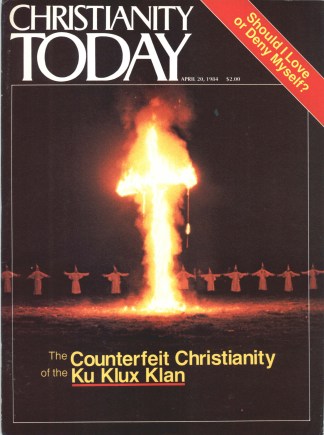They are concerned that many Jews and evangelicals know each other only by reputation. And they are alarmed by the subtle threat of anti-Semitism that is heightened by Middle East tensions. So they gathered to discuss past misunderstandings, to build friendships, and to confront issues of mutual concern.
Cochaired by Rabbi A. James Rudin of the American Jewish Committee (AJC) and Marvin R. Wilson of Gordon College, the 60 participants included scholars, theologians, and lay leaders. They represented various segments of evangelicalism and the major divisions of Judaism—Orthodox, Conservative, Reform, and Reconstructionist.
Meeting at Gordon College in Wenham, Massachusetts, the conferees examined the roots of the two communities, their part in shaping American society, their teaching about one another, and the problems confronting their religions. The conference was the third of its kind. A consultation in 1975 focused on beliefs concerning the Messiah, conversion, and the Holocaust. A second meeting in 1980 concentrated on views of sin, atonement, and redemption.
At the recent meeting, sparks flew during a discussion of the state of Israel. Both sides agreed that the Jewish state had a right to exist and rejected the idea that Zionism is racism. But disagreement erupted over criticism of Israel and the plight of the Palestinians. Some evangelicals maintained that no political entity is above criticism, while some Jews who believe Israel has a special status bristled.
The AJC’s Judith Banki referred to the “sharp difference between critical friends and critical enemies of Israel.” She said most critics condemn Israel for “failing to live up to pure democracy or pure justice.” But she added that little is said about the sins of Israel’s neighbors.
The conferees did not debate the issue of whether a Jew who converts to Christianity can remain a Jew. The Jewish participants agreed that such a convert cannot still be considered a Jew. They said the conversion of Jews furthers their extinction as a people. The Christian participants did not press the issue.
It remains to be seen whether the conversion question will be the rock on which evangelical-Jewish dialogue will inexorably founder. But the Wenham consultation made it clear that evangelicals and Jews can work together in the areas of biblical studies, justice, and human rights.










